Anthony Albanese under pressure to lift nuclear ban from senior Labor, union figures
Labor and union figures are pushing the government to lift the nuclear ban, as polling reveals urban voters prioritise cheaper and reliable energy ahead of the renewables rollout.
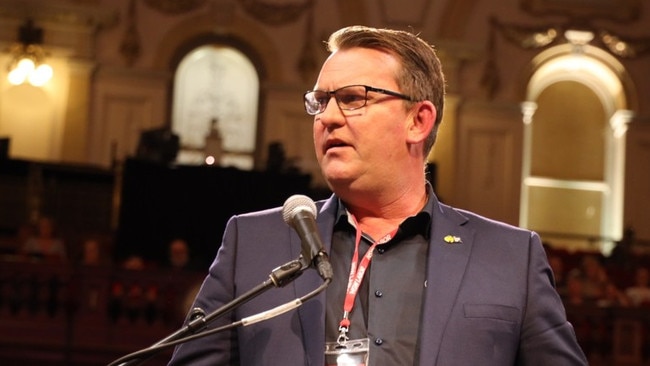
Senior Labor and union figures are pushing the Albanese government to lift the ban on nuclear energy to help shield jobs and achieve net zero emissions, as new polling reveals urban voters support cheaper and reliable energy supply ahead of the renewables rollout.
After Emmanuel Macron and former Labor minister Joel Fitzgibbon called on the government to remove prohibitions on nuclear energy at the COP28 summit, Australian Workers’ Union national secretary Paul Farrow said nuclear energy must be on the table to protect heavy industry.
Ahead of Chris Bowen flying to Dubai for the UN climate change conference on Wednesday, Mr Farrow said “if you really believe climate change is a crisis you should be open minded to every single emission reduction option on the table”.
The AWU national secretary, who in July replaced long-time nuclear energy advocate Daniel Walton, said it is “better for the planet if Australia makes steel and aluminium and glass than if those products are made in less regulated countries”.
“But if we want those industries to stay standing we need to accept that some combination of coal, gas or nuclear power is necessary. If nuclear power doesn’t stack up on cost today, that’s one thing. But objecting because of outdated twentieth century ideology is another,” Mr Farrow told The Australian.
“Right now Australia cannot sustain, let alone grow, its heavy industry sector on renewables alone. One day we’ll get there, but anyone serious will tell you that day is a fair way off.”
Mr Fitzgibbon, a former defence and agriculture minister who represented the coalmining electorate of Hunter for 26 years, said the nuclear ban “makes no sense” because every option should be considered.
As the Coalition ramps-up pressure on the government over its renewables-only focus, Mr Fitzgibbon said the world won’t meet its net zero emissions aspirations without installing more nuclear plants.
Another senior Labor figure, who didn’t want to speak publicly, said there was an inevitability in the science community that there’d be a public debate on the uses of nuclear energy, which was only accentuated by the AUKUS agreement.
Mr Fitzgibbon, who led pushback inside Labor ranks following the 2019 election to present a more realistic climate change plan, warned too much faith in a few favoured technologies was a “recipe for failure and economic harm”.
“On the question of whether Australia should also embrace nuclear generation, that should be a matter for the market. Therefore, the prohibition on nuclear generation in Australia should be lifted. It simply makes no sense and every electricity generation option should be readily available to us,” Mr Fitzgibbon said.
“Having said that, if the ban was lifted, it would be a long time – if ever – before we saw a nuclear generator in Australia. It’s hard enough to secure an approval for gas extraction, let alone for a nuclear plant.”
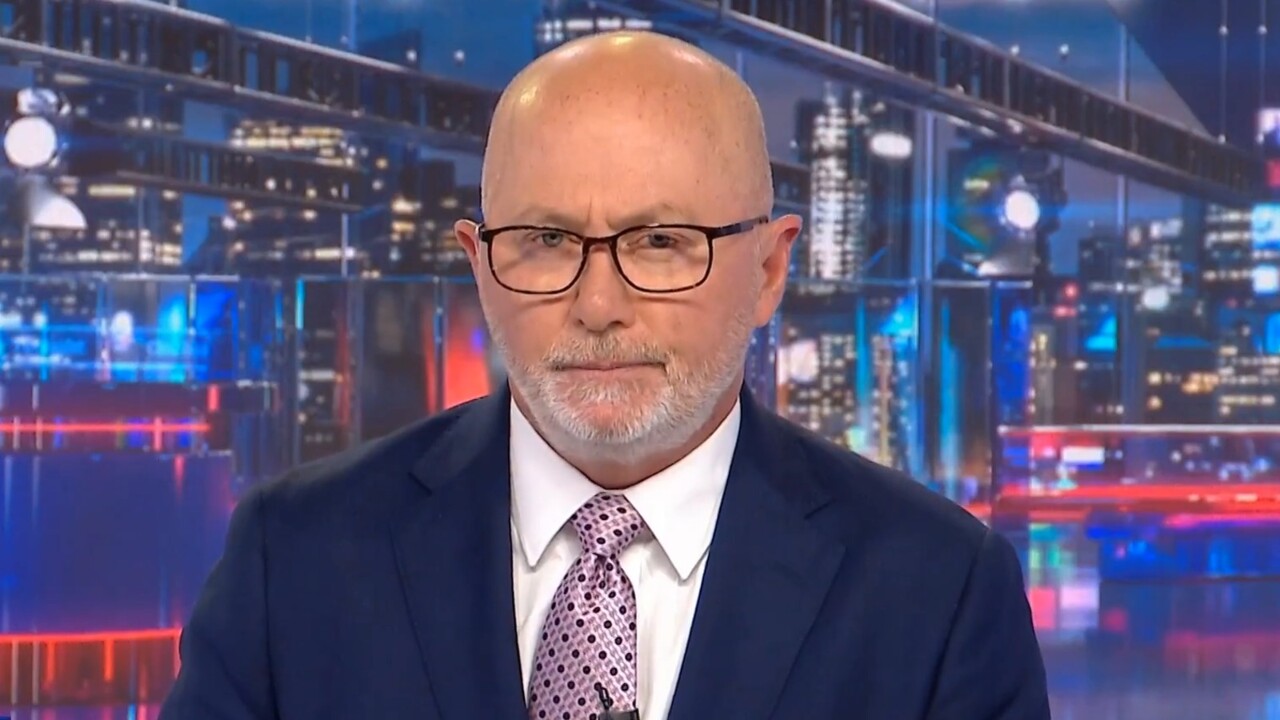
Mr Macron on Sunday urged Australia to lift its nuclear ban, declaring that nuclear energy is a “source that is necessary to succeed for carbon neutrality in 2025”.
Jim Chalmers, a member of the AWU, rejected any push to lift the moratorium on nuclear power, saying the economics didn’t stack up.
“Nuclear energy doesn’t make sense for Australia, it doesn’t make economic sense and even if it did, it would take too long. We have remarkable advantages here – geological, geographical meteorological – and we need to maximise those advantages,” Dr Chalmers said.
“That means getting more renewable energy into the system so that we can get cleaner and cheaper energy, and broaden and deepen our industrial base.”
The Australian understands Mr Bowen will enter negotiations in Dubai over a push to phase down unabated fossil fuels but no position has been finalised. While there is overwhelming consensus on tripling global renewable generation capacity, COP28 negotiators will finalise the wording around fossil fuels before the conference ends next Tuesday.
The Coalition for Conservation group is hosting Liberal and Nationals MPs and senators at COP28 including opposition energy spokesman Ted O’Brien, Bridget McKenzie, Kevin Hogan, David Gillespie, Dean Smith, Andrew Bragg and Perin Davey.
The fight over nuclear power comes as new CT Group polling testing climate change and energy sentiment in capital cities across the globe reveals a majority of Sydney and Melbourne voters support more investment in combating climate change. However, the poll found support plunged if monthly taxes increased by $15 or $100 per month.
The Global Energy Insights survey found urban voters in the two capital cities ranked keeping energy prices down (40 per cent) as the top priority ahead of keeping energy supply reliable (31 per cent) and transitioning to renewables (29 per cent). The poll showed a +6 favourability towards nuclear, well behind solar, wind and hydro.
CT Group Australia managing-director Catherine Douglas said “costs are the prism through which Australians are measuring everything at the moment”.

“While some segments of the community are advocating for extreme solutions or for government to back winners like nuclear, solar, or wind farms, what the electorate is looking for is a sensible transition to lower emissions energy supply,” Ms Douglas said.
“The business community and voters are of one mind on the need for a pragmatic approach that is not captive to special interests or extremist advocacy at either end of the debate.”
A US-led pledge on the COP28 sidelines to triple global nuclear capacity by 2050, which the government shunned, was endorsed by more than 20 countries. Of the 22 countries who joined the pledge, 18 have existing nuclear energy industries. Fourteen countries with nuclear energy industries, including Germany, did not sign the pledge.
Investor Group on Climate Change chief executive Rebecca Mikula-Wright, who represents super funds and investors managing more than $30tn in assets, said investors were looking for the least-cost pathways for decarbonisation. The IGCC chief said there was “no interest right now” among investors about using nuclear energy to achieve net zero emissions by 2050.
“Comparatively, nuclear has project time blowouts of anything from seven to 15+ years and cost blowouts in the 10s of billions. It just means that, as a technology, it is much further down the field when you’ve got the lowest cost technologies, renewables, batteries and so on, that are available to deploy now, that are more on budget and more on time comparatively than nuclear,” Ms Mikula-Wright said.
Peter Dutton said it was sensible for Australia to embrace nuclear energy just as other developed countries had done, labelling Mr Macron’s call to revoke the nuclear power ban “a cry of common sense”.
ADDITIONAL REPORTING: BEN PACKHAM


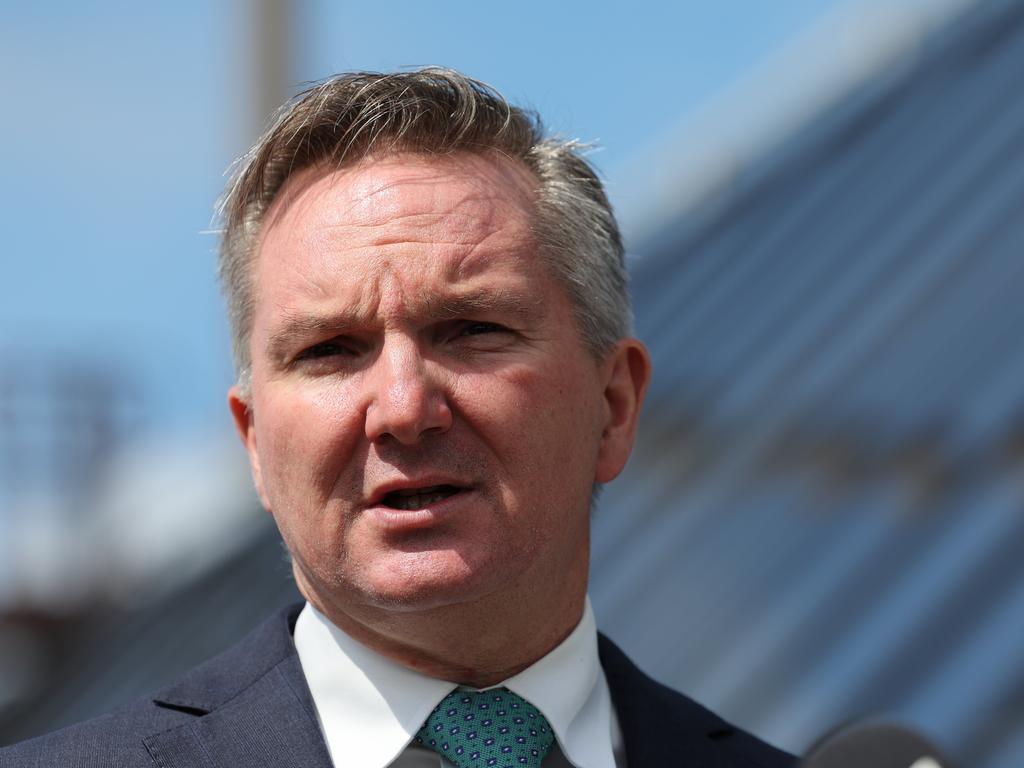
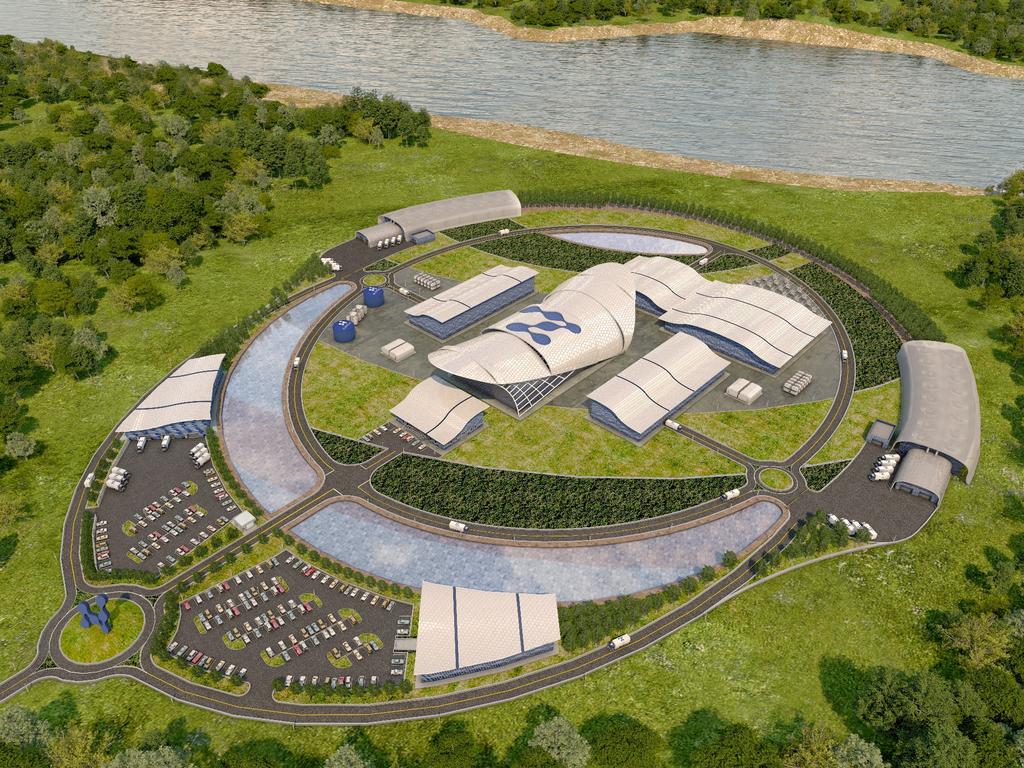
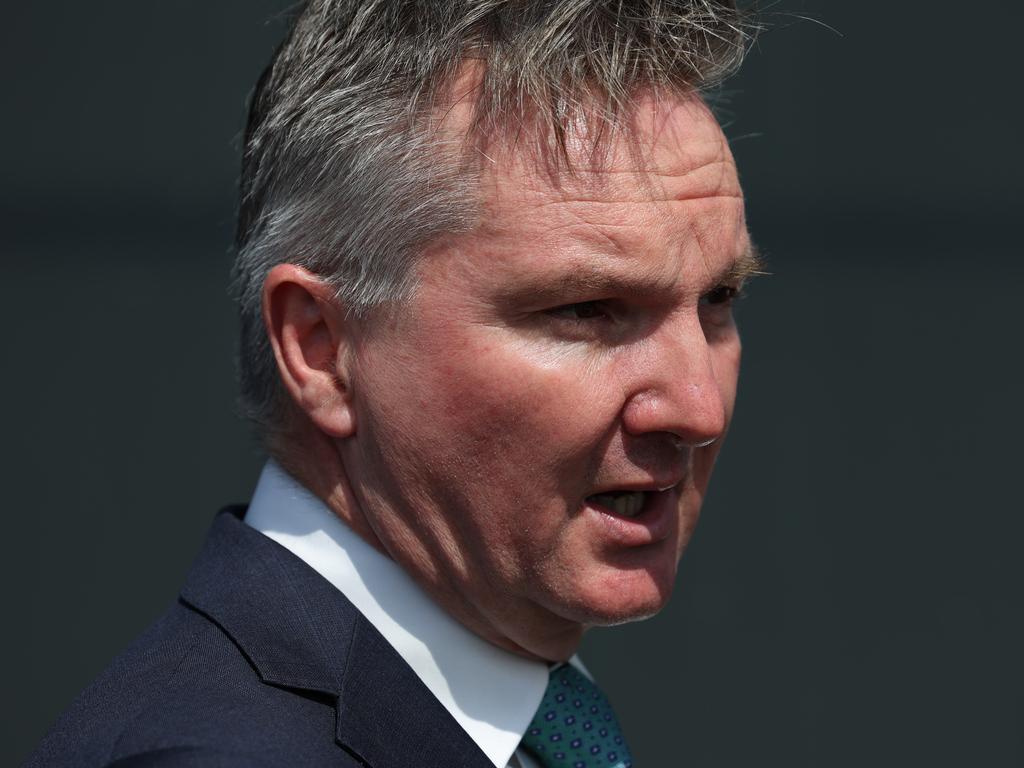
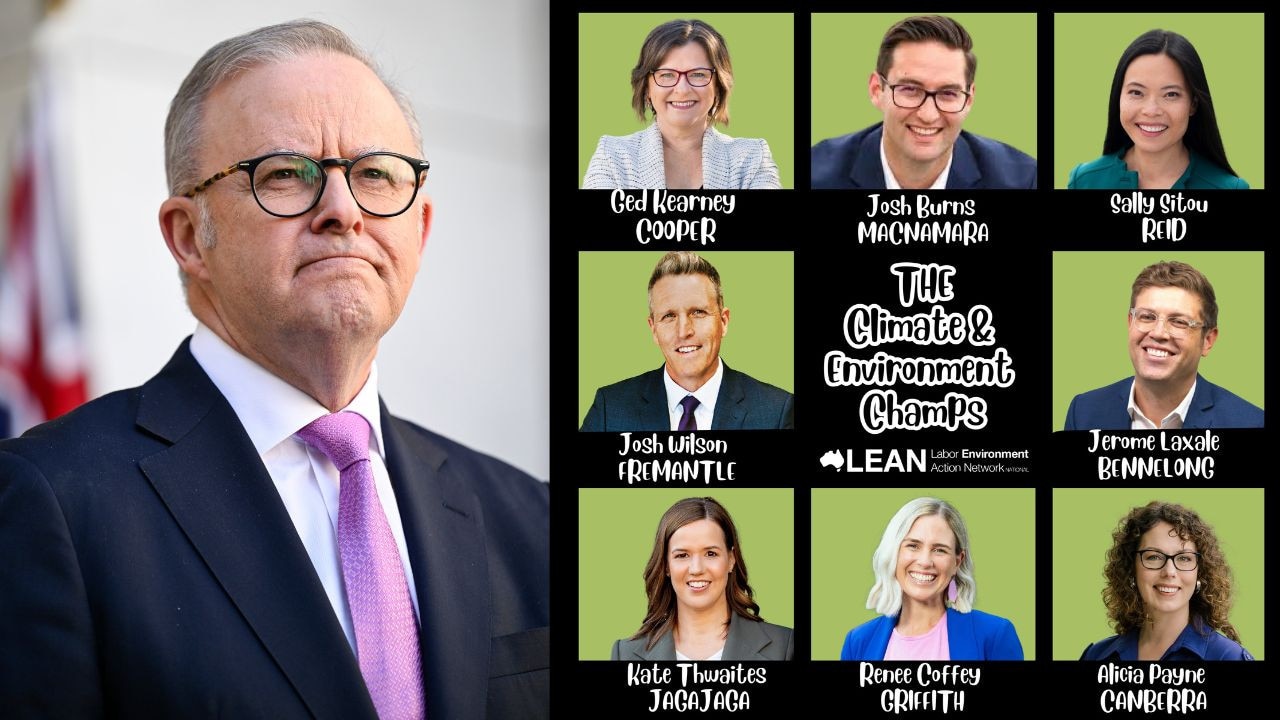
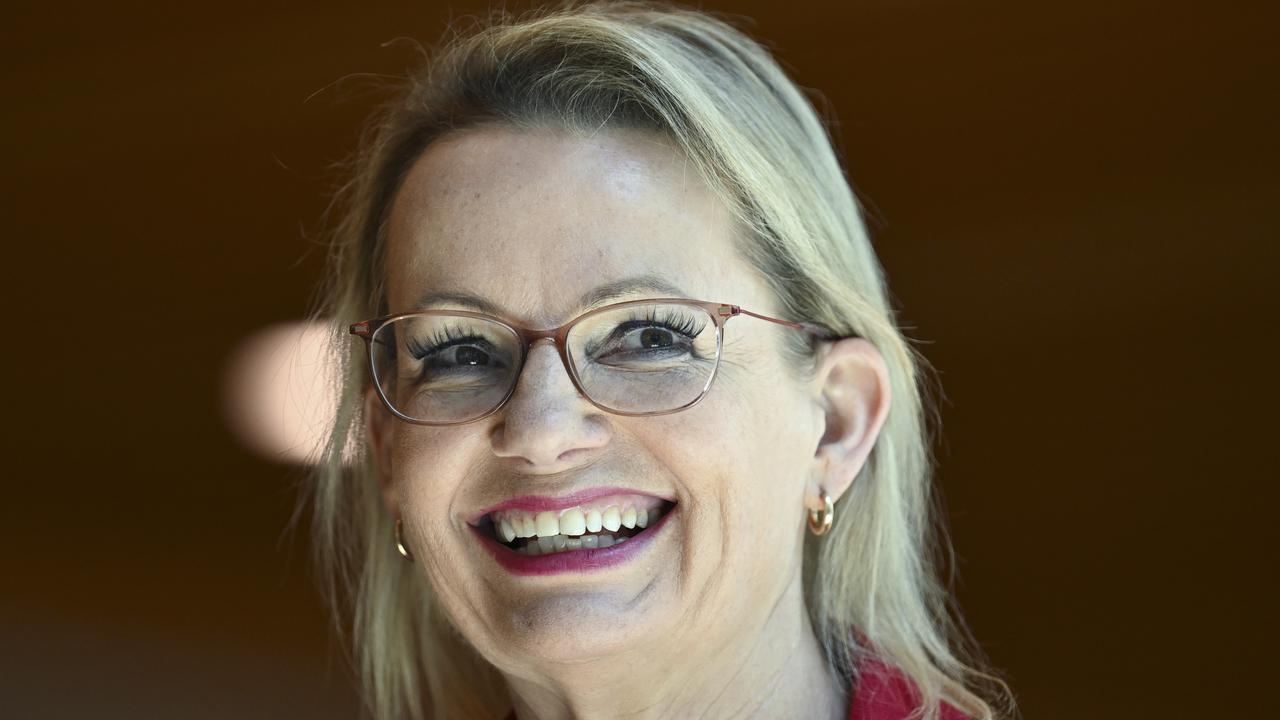
To join the conversation, please log in. Don't have an account? Register
Join the conversation, you are commenting as Logout